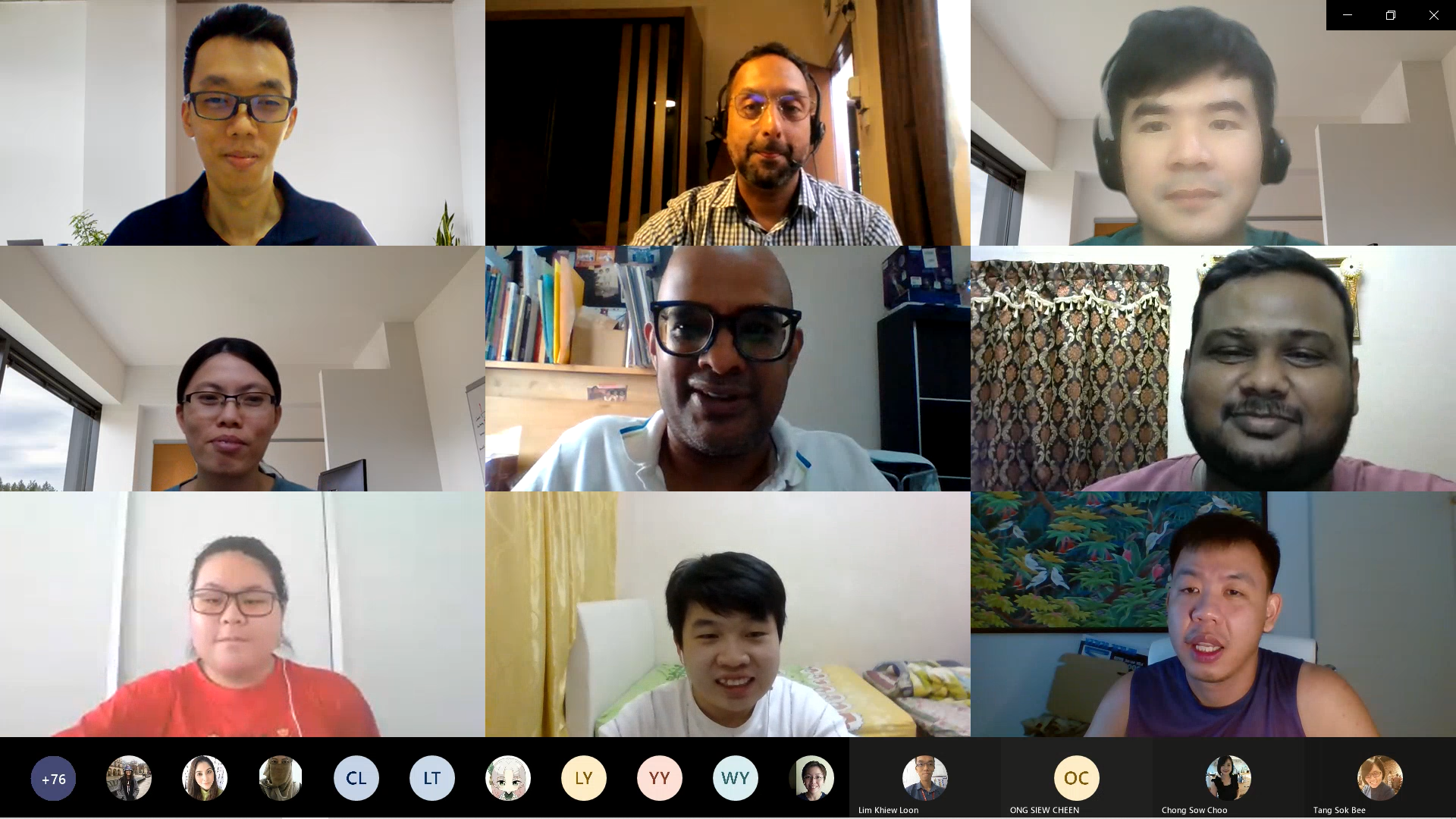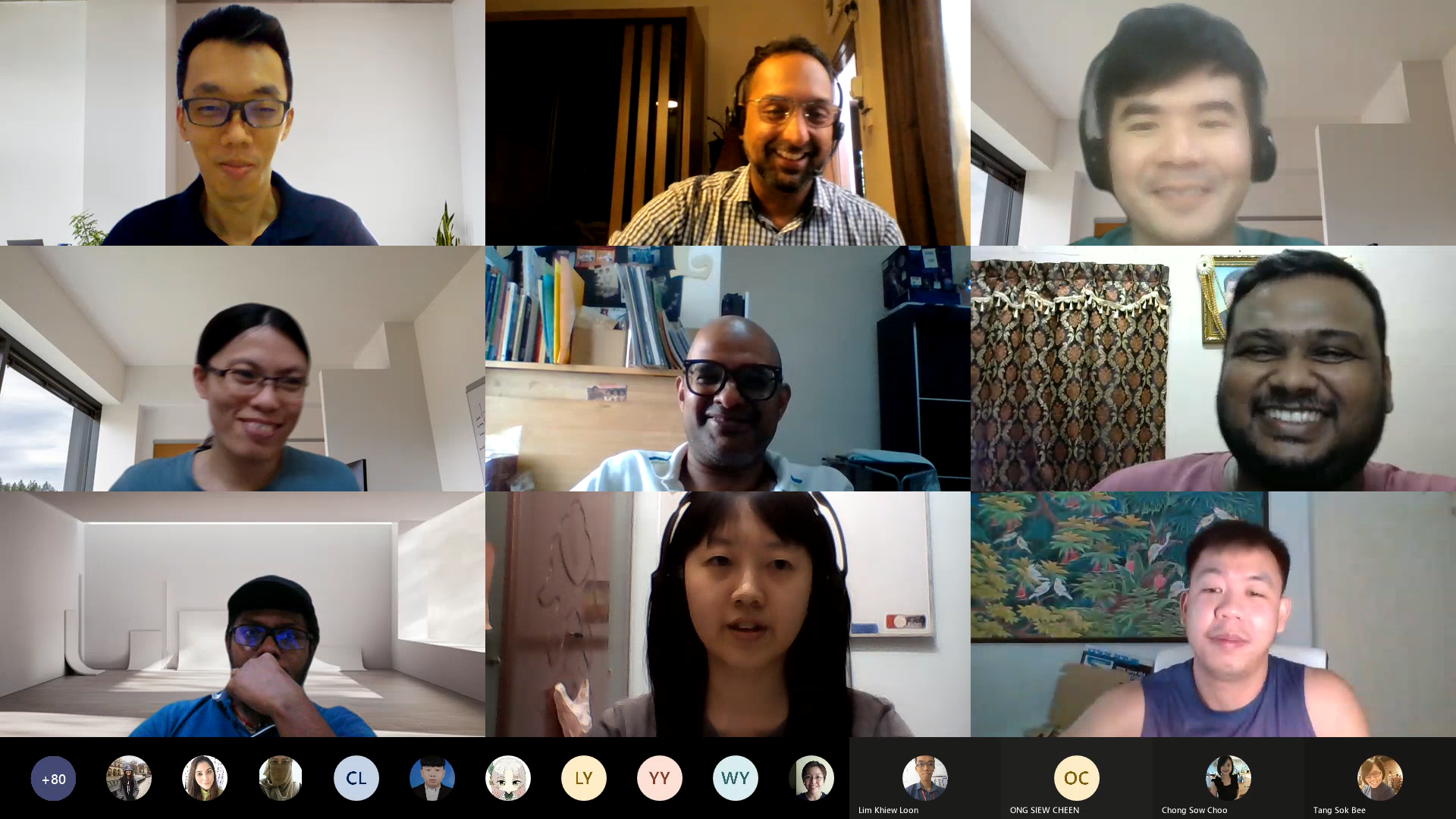
The Centre for Foundation Studies of Kampar Campus organised a virtual talk titled “Outcome-Based Learning” on 1 September 2021 via Microsoft Teams. The virtual talk received a total of 119 participants in attendance and was moderated by CFS lecturer Lionel Vytialingam.
The talk was delivered by CFS Deputy Director Lim Khiew Loon. The virtual talk is aimed to increase the awareness of Outcome-Based Learning (OBE) and its approaches which was initiated by the University in its effort to promote holistic learning; which is congruent with SDG 4 – to ensure inclusive and equitable quality education and promote lifelong learning opportunities for all.
Lim started the session by introducing OBE to the participants. He said, “OBE (Outcome-Based Education) is an approach that focuses on the attainment of intended learning outcomes where students develop behaviours that are authentic to their discipline and are assessed holistically within the context of their learning, with less emphasis on grades.”
Furthermore, Lim explained how OBE caters to the measurable Course Outcomes (CO) and programme outcomes via three approaches; firstly, by defining course outcomes to explicate what a student is expected to know; secondly, by providing learning activities that help students accomplish these outcomes; and thirdly by assessing the extent to which students achieve these outcomes through the use of clear assessment criteria as a performance indicator.
Highlighting the advantages of the OBE system and how OBE represents a paradigm shift from traditional education to Outcome-Based Education, he said, “OBE shifts the focus from teacher-centred learning to student-centred learning, and the advantages of these implementations differ from traditional learning, including learners’ attribute and outcome orientation. Besides, the OBE also enables learners to be more active as it allows them to have learning purpose or outcome in mind, thus potentially enhancing their active learning experience.”
Lim clarified that the OBE is in line with the requirements of qualification and professional bodies, including the Malaysian Qualification Agency (MQA), Professional Programmes and Malaysia Education Blueprint (2015-2025).
To increase the audiences’ understanding, Lim also provided a glimpse into the UTAR OBE Processes by showing them the connectivity between UTAR’s six educational pillars, the eight Malaysian Qualifications Framework Learning Outcome Domains, UTAR Softs Skills Development Certification and Extra-curricular Activities in OBE Implementation. Moreover, Lim also shared about Programme Educational Objectives (PEOs), Programme Outcomes (PO) and Course Outcomes (CO) accordingly.
Before ending the session, Lim presented a short video that summarised his talk and expressed his hope to see participants embrace the OBE and its advantages. Overall, the virtual talk received positive feedback from the participants as it provides insights into the OBE system implemented by the University.
The virtual talk ended with Q&A and group photograph sessions.


The group photograph at the end of the session
© 2021 UNIVERSITI TUNKU ABDUL RAHMAN DU012(A).
Wholly owned by UTAR Education Foundation (200201010564(578227-M)) LEGAL STATEMENT TERM OF USAGE PRIVACY NOTICE